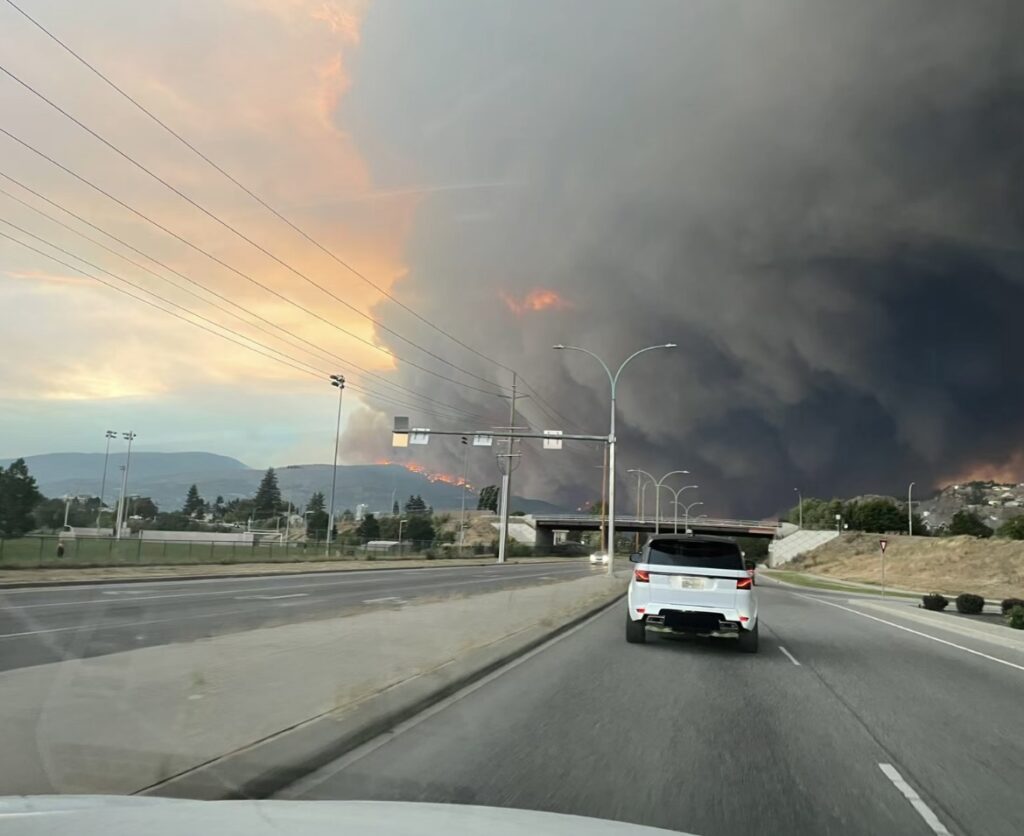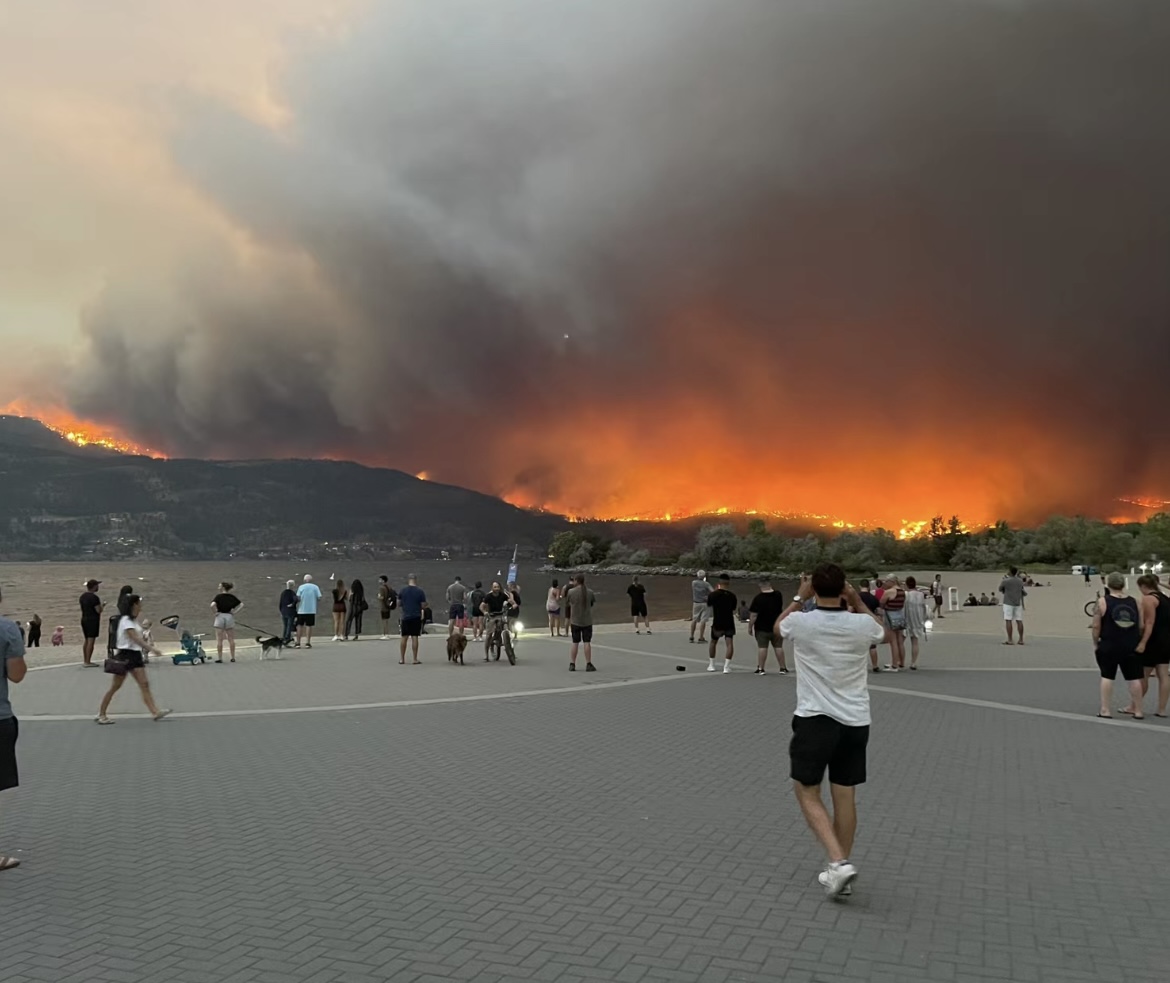Kamloops, B.C. – In response to the increasingly unpredictable and devastating wildfire seasons, Thompson Rivers University (TRU) has forged an empowering collaboration with local authorities and the British Columbia (BC) government to proactively equip Kamloops for the upcoming fire season. This bold initiative emerges from the pressing need after a challenging year, wherein wildfires wreaked havoc across the province, causing severe damage. The resilient response of local governments, notably the firefighters, in managing the crisis underscores the critical necessity for a unified and far-reaching strategy moving forward.

The wildfire season of 2023 brought widespread devastation to communities across B.C., with Kamloops bearing the brunt of this catastrophe. Evacuations affecting thousands, substantial damage to infrastructure, and a noticeable rise in air quality issues were among the consequences. Over 3,000 hill fires were recorded, consuming more than 7,000 square kilometers of land. The herculean efforts of over 10,000 personnel, including firefighters, volunteers, and military support, were mobilized to combat the fires.
The local firefighters, along with neighboring teams, demonstrated exceptional dedication in containing the fires and protecting their community. Their unwavering teamwork during the crisis is commendable. However, the sheer scale and intensity of the fires surpassed the capabilities of the firefighters, emphasizing the vital need for a proactive and coordinated approach in the upcoming fire seasons.
Recognizing the urgency of the situation, Thompson Rivers University has taken a pivotal role in spearheading a comprehensive plan to prepare Kamloops for the forthcoming fire season. Dr. Mike Flannigan, TRU wildfire specialist, emphasized the university’s expertise in environmental science, emergency management, and community resilience, stating, “Utilizing machine learning, we can more accurately predict wildfire behavior and issue early warnings.”
This proactive approach, led by TRU in partnership with the B.C. government and local authorities, encompasses a multi-faceted strategy to fortify the region:
Data-Driven Preparedness: TRU will collaborate with government bodies and local authorities to analyze historical wildfire data, assess risk factors, and identify vulnerable areas. This data-centric approach will aid in resource allocation and prioritize areas for mitigation efforts.
Community Engagement and Education: Public awareness campaigns, workshops, online resources, and public meetings will be conducted to educate residents about fire prevention, evacuation protocols, and safety measures.
Mitigation and Preparedness: Collaborating with local governments and fire departments, TRU will aid in developing and implementing wildfire risk reduction strategies, which may include prescribed burns, vegetation management, and infrastructure upgrades for fire resistance.
Research and Innovation: University researchers will focus on innovative solutions for fire prevention and management, including the development of fire-resistant materials, advanced fire detection technologies, and improved firefighting equipment.
Empowering Training Programs: TRU will introduce comprehensive training programs tailored for firefighters, first responders, and emergency management teams. These programs will ensure the region has highly skilled personnel proficient in managing wildfire emergencies effectively.
The B.C. government wholeheartedly embraces the collaboration with TRU and local authorities, recognizing the necessity for a proactive approach in wildfire management. Premier John Smith affirmed, “The 2023 wildfire season underscores that traditional disaster responses are no longer adequate. Adaptation and preparation for the future are imperative. Thompson Rivers University stands as a crucial partner in this endeavor.”
To bolster these efforts, the B.C. government has committed substantial additional funding. The specific allocation, amounting to $15 million, underscores the government’s commitment to wildfire prevention and mitigation, prioritizing the protection of lives and property.
Local firefighters at the forefront of battling wildfires welcomed this cooperative initiative. “Any support enhancing our ability to protect our community is invaluable,” expressed Kamloops Firefighter Mike Reynolds. The partnership with TRU represents a significant stride forward, and their involvement is deeply appreciated.
Learning from the hard lessons of the 2023 wildfire season and taking proactive measures, Kamloops and its surrounding region are now better equipped to face future fire seasons. The collaboration between Thompson Rivers University, the Government of British Columbia, and local authorities vividly demonstrates the unwavering commitment of all parties to shield the region and its residents from the devastating impacts of wildfires.
Meeting the Needs of Firefighters and Emergency Responders
Thompson Rivers University’s commitment to providing comprehensive training programs is crucial in equipping firefighters and emergency responders with the necessary skills and knowledge. These programs are meticulously designed to address the evolving challenges posed by wildfires and emergency situations. The university is set to offer a range of training sessions that cover various aspects:
Advanced Firefighting Techniques: TRU will provide hands-on training that includes advanced firefighting strategies, equipment operation, and situational drills. This training aims to enhance responders’ proficiency in managing intense fire situations effectively.
Emergency Response Planning: The programs will focus on formulating comprehensive emergency response plans, emphasizing quick decision-making, communication strategies, and coordinated efforts during crises.
Wildfire Risk Assessment and Management: Specialized training modules will delve into assessing wildfire risks, understanding fire behavior, and executing effective mitigation strategies. Firefighters and emergency responders will gain insights into preventing and managing wildfires before they escalate.
Community Engagement and Public Safety: Training will encompass educating communities about fire safety measures, conducting public outreach initiatives, and implementing effective evacuation protocols. Empowering the responders to engage with the public efficiently is a key component.
Technological Advancements and Innovations: Recognizing the significance of technological advancements, the training programs will include sessions on utilizing cutting-edge tools, such as drone technology for fire surveillance, data analytics for predictive modeling, and adopting innovative firefighting equipment.
The B.C. government’s commitment to this collaboration includes a substantial injection of $15 million into these initiatives. This allocation will support the implementation of these training programs and aid in procuring advanced equipment, ensuring that responders are equipped with the best resources available to protect communities and prevent devastating wildfire events.

